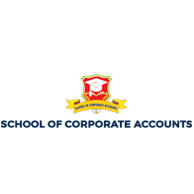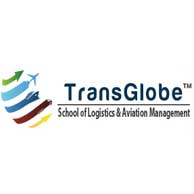Institutes for Supply Chain Management Training in Ernakulam
Institutes for Supply Chain Management Training are educational establishments that offer specialized programs aimed at equipping individuals with the skills and knowledge required to effectively manage and optimize supply chains. These programs cover various aspects of supply chain management including logistics, procurement, inventory management, and production planning. The objective is to develop professionals who can enhance efficiency, reduce costs, and improve the overall performance of supply chains.
In Ernakulam, a bustling city known for its vibrant commercial activities, the demand for trained supply chain professionals is on the rise. The city's strategic location and industrial growth make it an ideal hub for supply chain operations, thereby increasing the need for proficient supply chain managers. Consequently, several institutes have emerged to cater to this growing need, offering a range of courses and certifications in supply chain management.
Availability of Institutes for Supply Chain Management Training in Ernakulam
Ernakulam boasts a variety of institutes that provide comprehensive training in supply chain management. These institutes range from established universities to specialized training centers, each offering unique programs tailored to different levels of expertise. Some well-known institutes include the Indian Institute of Management (IIM) Kozhikode (which offers courses in their Kochi campus), Xavier Institute of Management and Entrepreneurship (XIME), and various local training centers that provide specialized short-term courses.
These institutes offer a mix of classroom-based learning, online courses, and hybrid programs to accommodate the diverse needs of students and working professionals. The curriculum is often designed in collaboration with industry experts to ensure that it is aligned with current market demands and technological advancements. In addition to theoretical knowledge, these programs emphasize practical training through case studies, internships, and real-world projects.
Key Expectations from Institutes for Supply Chain Management Training in Ernakulam
Comprehensive Curriculum
Prospective students expect a well-rounded curriculum that covers all essential aspects of supply chain management. This includes modules on procurement, logistics, inventory management, production planning, and supply chain analytics. A comprehensive curriculum ensures that graduates are well-prepared to handle various challenges in the supply chain domain and can apply their knowledge effectively in real-world scenarios.
Experienced Faculty
Another critical expectation is the presence of experienced and qualified faculty members. Students look for institutes where instructors have significant industry experience and academic credentials. Faculty with a strong background in supply chain management can provide valuable insights, practical knowledge, and mentorship, which are crucial for the professional development of students.
Industry Connections and Placements
Institutes that have strong connections with the industry are highly preferred. These connections can facilitate internships, projects, and job placements for students. Institutes with a good track record of placing students in reputable companies within the logistics and supply chain sector are often sought after. Collaborations with industry partners also enhance the learning experience by providing students with exposure to current industry practices and trends.
Modern Infrastructure and Resources
State-of-the-art infrastructure and resources are also important considerations. This includes access to the latest software tools, well-equipped classrooms, and modern libraries. Institutes that invest in providing a conducive learning environment, including advanced simulation labs and research centers, are more likely to attract students who are serious about their professional growth.
Flexibility and Support Services
Flexibility in terms of course delivery and support services is another key expectation. Many students and professionals prefer institutes that offer flexible learning options, such as part-time courses, evening classes, and online modules. Additionally, support services like career counseling, academic advising, and student assistance programs play a significant role in enhancing the overall learning experience.
Frequently Asked Questions about Institutes for Supply Chain Management Training in Ernakulam
What are the prerequisites for enrolling in a supply chain management course in Ernakulam?
Most institutes require candidates to have a bachelor's degree in any discipline for postgraduate courses. For short-term or certificate courses, the prerequisites may vary, but generally, a basic understanding of business concepts and logistics is beneficial. Some advanced programs may also require work experience in related fields.
How long does it take to complete a supply chain management course?
The duration of supply chain management courses can vary significantly. Certificate courses may take a few weeks to a few months to complete, while diploma programs typically last for 6 months to a year. Postgraduate degrees, such as an MBA in Supply Chain Management, usually take 1-2 years to complete.
What career opportunities are available after completing a supply chain management course in Ernakulam?
Graduates can pursue various career paths in logistics, procurement, inventory management, operations, and supply chain analysis. Job roles include supply chain manager, logistics coordinator, procurement officer, operations manager, and supply chain analyst. The demand for skilled supply chain professionals is high, particularly in Ernakulam's growing industrial and commercial sectors.
Are there online options available for supply chain management training in Ernakulam?
Yes, many institutes offer online and hybrid courses to cater to the needs of working professionals and those who prefer flexible learning options. These online courses often include interactive sessions, virtual simulations, and access to digital resources to provide a comprehensive learning experience.
What is the cost of supply chain management training in Ernakulam?
The cost of training can vary widely depending on the institute and the type of program. Certificate courses may range from INR 10,000 to INR 50,000, while diploma and postgraduate programs can cost anywhere from INR 50,000 to INR 5,00,000. It is advisable to check with individual institutes for detailed fee structures and available financial aid options.
















